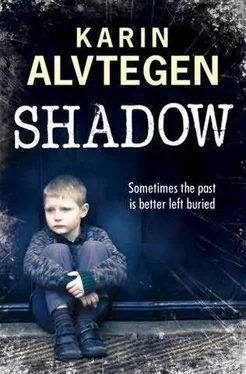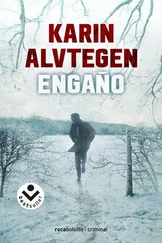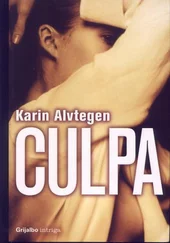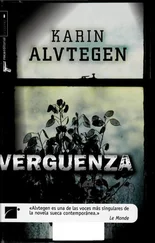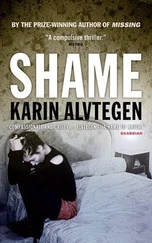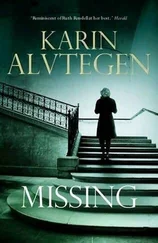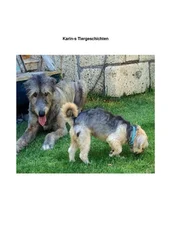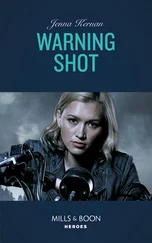Axel was following her words with interest and looking at the little map taking shape on the napkin.
‘But Erik refuses to help Eva for free. He says that she has to have sex with him first, then he’ll row her over to the other side of the river.’
Axel raised his eyes and looked at her face, following the movement of her lips as she went on with her story.
‘Eva, of course, is broken-hearted, so she goes to Olof, who lives here…’
He forced himself to look at the napkin, where she drew another square between Eva’s and Erik’s houses.
‘… and tells him what Erik said. She asks him to come with her and talk some sense into Erik. But Olof doesn’t want to get involved and asks her to leave. So Eva sees no alternative but to do as Erik wants, and even though he’s a disgusting old man she goes there and has sex with him. Then he rows her across the river.’
Torgny came back and leaned across the table to look at the napkin.
‘Are you telling that one again?’
‘Don’t bother me, go away.’ Halina shooed him off.
Torgny sighed and left, stumbling a little as he went.
Halina continued filling in details on the napkin. Axel preferred looking at her rather than her drawing.
‘Is this the plot of the book you’re writing?’
‘No, it’s a moral dilemma. Shhh. Eva finally arrives at Per’s house and tells him what’s happened. Per is furious that Eva had sex with Erik and throws her out. Eva then goes to Sven and tells him that she was forced to have sex with Erik so she could help Per, who then threw her out. Sven flies into a rage and goes to Per and beats him up.’
Halina looked up.
‘Are you following this?’
‘I think so. People seem to be on neighbourly terms in this town.’
She put down the pen and took out a cigarette, lit it, and blew smoke out of the corner of her mouth.
‘What I want to know is which of them was most in the wrong. Grade them from one to five, with the one who was most in the wrong a five.’
‘Am I supposed to decide?’
‘Not decide. Just tell me what you think. This should be a topic that appeals to you.’
‘I generally focus on asking interesting questions rather than answering them.’
‘But you must have an opinion, don’t you? Here’s a taste of your own medicine.’
He pulled over the napkin and looked at her drawing. She had even drawn in a little crocodile, on the riverbank next to Erik’s house. He glanced up again and could see her nipples under her jumper.
‘What do you think?’
She leaned back and looked at him. Torgny’s distinctive laugh resounded through the room, and both turned to look his way. He had sat down on a sofa with a glass in one hand and a bottle in the other.
Halina took a drag from her cigarette.
‘I know what I think.’
‘Who is it then?’
‘Olof.’
‘Olof?’
She nodded.
‘But he’s the only one who didn’t do anything.’
‘That’s precisely why.’
For a moment he recalled the first years with Alice. All the dizzying conversations that had enriched their writing. The dialogue that had now broken off and fallen silent. He looked at Torgny, who was leaning back in the sofa with his eyes closed. He never would have believed that anything Torgny had would ever arouse his envy. But now he felt it, a painful jealousy. To have a woman it was possible to talk with.
‘I was nine years old when the war ended and I was liberated from Treblinka.’
She pulled up her sleeve and showed him a row of tattooed numbers.
‘My mother was shot as soon as we stepped off the train, but my sister and I managed to survive for three years inside the barbed wire. Just before the liberation she died of exhaustion.’
Axel searched for words.
‘I don’t know what to say. I’m so sorry for your loss.’
‘Thank you.’
Neither of them said anything for a moment. Halina stubbed out her cigarette. All around them the partying continued.
‘The evil I saw in the camp was inconceivable. It’s impossible to understand how human beings can behave that way, how something like that can happen. But one thing I do know: many of the people working in the camps thought that they were doing the right thing; they didn’t consider themselves evil. They were driven by their convictions and believed that the men who made the decisions and gave the orders possessed the truth. Because who decides what is good or evil? From what angle must one look to get the right view?’
Axel refilled their glasses.
‘Perhaps by trying to see the whole thing through the eyes of an opponent.’
Halina snorted.
‘And you think that people are capable of that? If we were, the world wouldn’t look the way it does.’
‘But that wasn’t what your question was about. You asked how we should act.’
Halina raised her glass but set it down again without taking a drink.
‘I believe that what is most dangerous for a society is when people turn over their responsibility to others. When they stop thinking and acting for themselves.’
She reached for the napkin and drew a circle round Olof ’s house. She crossed it out with repeated strokes.
‘All those people who knew what was going on, who thought it was wrong but still did nothing, isn’t that evil? You Swedes, for instance, who saved your own skin by letting the German trains pass through to Norway and even fed the soldiers along the way. Your king who apparently wrote a letter to Hitler congratulating him on his successes on the Eastern Front. All your banks and companies that continued doing business with the Nazis and made tons of money and never had to answer for it later. Isn’t that evil? How many of the banks’ or other companies’ customers do you think care about that today? Or take Hugo Boss. He was the one who designed and sewed the uniforms of SS officers. That’s not something they use in their advertising.’
She drew small circles on the napkin.
‘I was only a child, and every day I waited for someone to come and rescue us. I was sure that if only someone found out what was happening, they would come for us. That’s what hurts the most, finding out afterwards that so many people just let it happen, even profited from it. Afterwards they simply switched sides and went on with their lives as if nothing had happened.’
Axel listened as she continued her story, how she travelled alone, exhausted and malnourished to Sweden on a hospital ship. How she lived at first in a sanatorium where she regained her strength and then went to live with her grandmother’s sister, who had managed to flee to Sweden only a few days before her friends and family were shut in behind the walls of the Warsaw ghetto.
‘And don’t believe that we were welcome in Sweden, not with a J for Jew in our passports. She was smuggled in on a fishing boat and never dared register here, not even after the war was over, although I tried to talk her into it. She died of pneumonia in the late fifties because she was too scared to go to the doctor. When I finally got her there it was too late.’
He recalled the government’s decision the year before the war broke out, even though he was too young really to understand and only afterwards grasped the cynicism behind it. A foreigner could be refused entry if it was suspected that the person intended to leave his homeland for ever. At the same time in Germany, the law was that a Jew could get an exit visa only if the person promised never to return. For an immigrant to be granted a residence permit in Sweden, financial guarantees were required, and at the same time Jews emigrating from Germany were not allowed to take their property with them. The opinion in Sweden had been clear. They wanted to prevent the risk that a great mass of fleeing Jews would come to Sweden. By the time the war broke out, Jewish immigration had almost completely ceased.
Читать дальше
